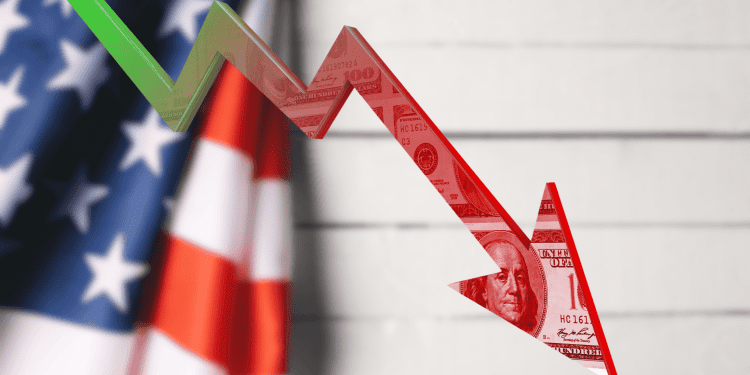- JPMorgan Chase analysts raised the odds of a U.S. recession this year to 35%, up from their previous 25% estimate, citing easing labor market pressures.
- They expect the Federal Reserve to cut interest rates twice this year, in September and November, as inflation eases.
- The July jobs report showing slower job growth and a higher unemployment rate triggered the “Sahm rule,” an indicator used to provide an early recession signal.
JPMorgan Chase analysts have increased the likelihood of a US recession occurring in 2024 due to easing labor market pressures, according to a new analyst note. The economists raised the odds of an economic downturn this year from 25% to 35%.
JPMorgan’s Economic Outlook
The JPMorgan analysts noted that US wage inflation is slowing down compared to other developed economies. They believe this indicates that service price inflation will continue to decrease and that the Federal Reserve‘s current policy stance is restrictive enough.
While the risk of a 2024 recession has increased, JPMorgan still sees a 45% chance of a downturn in the second half of 2025. The economists have also reduced the likelihood of the Fed keeping interest rates higher for longer to just 30%. With inflation easing, they expect two rate cuts by the central bank this year.
July Jobs Report Triggers Recession Fears
The analyst note comes after the disappointing July jobs report, which showed a sharp slowdown in payroll growth along with an unexpected jump in unemployment to 4.3%. This triggered recession fears as it set off the Sahm rule, which signals a likely recession when the three-month jobless rate average rises half a point above its 12-month low.
Some economists have suggested the unemployment increase may not indicate a coming recession this time, since it stems from more people entering the workforce rather than layoffs. However, the report added to concerns about slowing economic growth.
Conclusion
The jobs report led to a stock market plunge, with volatility remaining high since then. While risks have increased, markets did get a lift from better-than-expected jobless claims data on Thursday. The JPMorgan note highlights rising worries about the economic outlook this year.














